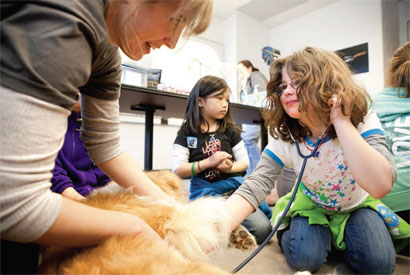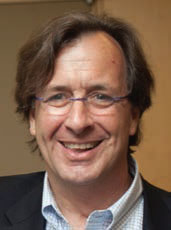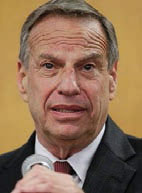$63 Million Renovation Planned for Vet College

The Vet school’s aging teaching facilities–home to, among things, its wildly popular annual open house–are getting an overhaul. Photo: Lindsay France / UP
The Vet college will get a major overhaul with a $63 million renovation and expansion project set to start next summer. With the aim of increasing annual class sizes to 120 from the current 102, the college will demolish and replace about 68,000 square feet of its facilities and renovate another 33,000 square feet. Although overall space won’t increase—in fact, it will go down slightly—the replacement of outdated infrastructure with modern teaching facilities will allow it to accommodate more students. Cornell currently has the smallest class size among leading vet schools.
The project, which is mostly being funded by New York State, features a public auditorium, larger classrooms including two more lecture halls, a new dining facility, and a renovated anatomy lab. James Law Auditorium will be replaced with a three-story building comprising the Veterinary Library, an “e-learning center,” and administrative offices. In addition to allowing for more vet students, the renovation will better accommodate a popular conference held on campus each year and offer more hands-on training opportunities for vet technician students from SUNY and elsewhere. Construction is scheduled to be completed in fall 2017.
U.S. News & World Report Rates CU Number 16
Cornell ranked sixteenth in U.S. News & World Report’s 2013–14 ratings of national universities, falling a spot from the previous year. The ranking put the University at the back of the pack in the Ivy League, with Princeton, Harvard, and Yale topping the list. Cornell finished in the top ten in several categories of undergraduate education, including seventh in engineering and tenth in business. It was named ninth on the list of “best value schools” and first on the list of universities rated by guidance counselors from top-ranked high schools.
Undergrad and Grad Student Die in Separate Incidents
Cornell mourned the loss of two students in September. Shortly after the semester began, twenty-year-old junior Denis Lukashkov of Mamaroneck, New York, left campus suddenly and drove several hours to the Tappan Zee Bridge north of New York City, where he jumped to his death. An applied economics and management student in CALS, Lukashkov had recently transferred from SUNY Albany. Later in the month, twenty-three-year-old Turi Alcoser, a PhD candidate in biomedical engineering, passed away in Ithaca. Although the University did not release an official cause of death, his hometown newspaper in San Antonio, Texas, reported that he took his own life. An alumnus of Carnegie Mellon, Alcoser won several awards for his research on the biophysical properties of breast cancer tumor cells.
Medical College Launches $300 Million Campaign

Weill’s Belfer Research Building, now nearing completion, is supported by both the previous and current fundraising campaigns. Photo: John Abbott
Shortly after wrapping up its research-oriented Discoveries that Make a Difference campaign—which raised $1.3 billion in about seven years—Weill Cornell has launched a new fundraising campaign aimed at translating scientific breakthroughs into innovations in patient care. When Driving Discoveries, Changing Lives was announced in mid-September, it was already halfway toward its $300 million goal, thanks in large part to a $100 million gift from college namesakes Joan and Sanford I. Weill ’55 and the Weill Family Foundation.
The campaign will support research and clinical work around chronic diseases, focusing on such areas as cancer, heart disease, diabetes, obesity, neurological disorders, and children’s health. It will enhance medical education through scholarships, faculty support, enhanced clinical experiences, and more. Says President David Skorton: “It’s critical to recognize the need to support student scholarship as a way for us to attract the next generation of physicians and scientists who will truly drive discovery and change lives.” The Weills’ gift—which will fund two new centers, one devoted to cancer research and the other to metabolic syndrome—brings the family’s total Cornell philanthropy to more than $600 million.

H.F. Johnson Museum of Art
History lessons: Inspired by this year’s New Student Reading Project selection—Julia Otsuka’s When the Emperor Was Divine, which deals with life in a Japanese-American internment camp during World War II—the Johnson Museum is hosting an exhibit of work by Roger Shimomura. His brightly colored paintings, influenced by Japanese ukiyo-e prints and Pop Art, are drawn from his family’s experiences at Minidoka Relocation Center in Idaho. The show runs through late December.
Communications VP Bruce Departs for Dartmouth

Photo: Jason Koski / UP
Tommy Bruce, Cornell’s vice president for university communications since 2004, is leaving the University to become senior vice president for public affairs at Dartmouth College, where he will oversee communications as well as government and community relations. “In Tommy Bruce, Dartmouth is gaining an acknowledged leader in the field of communications and media relations,” says President Skorton. “Tommy’s executive savvy, forward-looking optimism, and ability to creatively elevate and enhance Cornell’s global profile have been important to the continued success of Cornell’s educational and public-engagement missions.”
CU Pledges Scholarships to Inner-City Students
The University has joined a national nonprofit that helps students from inner-city schools pay for college. New York-based Say Yes to Education Inc. offers a variety of educational and mentoring services to lower-income students in six northeastern cities including Syracuse, Buffalo, Hartford, and Cambridge. Its mission includes partnerships with dozens of colleges and universities—now including Cornell—that offer free tuition to eligible Say Yes Scholars. The group serves nearly 65,000 children in kindergarten through twelfth grade. “Cornell University is committed to providing higher education access for academically talented students from all socioeconomic backgrounds,” said Vice Provost Barbara Knuth. “Partnering with Say Yes enables us to make our generous need-based financial aid policies and strong academic programs visible to students in some of the nation’s lowest-income school districts who might otherwise be unaware of their opportunities to enroll at Cornell or similar schools.”
Disgraced San Diego Mayor Takes Plea Deal

Photo: ABC News
In mid-October, former San Diego Mayor Bob Filner ’63, PhD ’73, pleaded guilty to one count of felony false imprisonment and two counts of misdemeanor battery—the latest chapter in a sordid tale of sexual harassment allegations that ended his political career. Less than a year after being elected, Filner resigned following accusations of lewd conduct—such as groping, kissing, and inappropriate comments—from more than a dozen women, including a university dean and a retired Navy rear admiral. In a resignation statement, which the L.A. Times called “a tour de force of self-pity and deflection,” he apologized to the city and the complainants, denied the allegations, and described himself as the victim of a lynch mob. The October charges—for which he entered a plea bargain mandating mental health treatment, three months of home confinement, and three years of probation—stemmed from his behavior with three of the women. A Freedom Rider during his undergrad days, Filner taught history at San Diego State University before being elected to the House of Representatives, where he served for two decades.
Two Professors Win MacArthur ‘Genius’ Awards
Two Cornell professors are among the twenty-four people named 2013 MacArthur Fellows. The unrestricted awards, commonly known as “genius grants,” each carry a $625,000 cash prize over five years. The University’s winners are Craig Fennie, a professor of applied and engineering physics in the Engineering college, and Sheila Nirenberg, a professor of physiology and biophysics at the Medical college. Fennie works in computational and theoretical materials physics, using theory to study new solids and nanostructures. Nirenberg, a neuroscientist, is designing an artificial retina that could restore sight to millions suffering from such diseases as macular degeneration and retinitis pigmentosa.
MOOCs Debut Next Semester
The University is gearing up to launch its first four MOOCs—massive open online courses—in partnership with the nonprofit distance-learning firm edX. The courses, starting next semester, will be available to any student around the globe with an Internet connection. Titles are Relativity and Astrophysics; Wiretaps to Big Data: Privacy and Surveillance in the Age of Complete Interconnection; Networks; and American Capitalism: A History. “Since Cornell University’s start nearly 150 years ago, the University has embraced its land-grant mission,” says senior vice provost for undergraduate education Laura Brown. “Now with the advent of MOOCs, Cornell adds progression and more modernity to its mission to serve a broad, even global, community of learners.” For more information or to register, go to www.edx.org.
Tech Campus Adds Four Profs
Cornell Tech has continued to expand its faculty with the hiring of four new professors, two of whom come from the Ithaca campus. They are Serge Belongie, a computer vision and machine learning specialist from the University of California, San Diego; Mor Naaman, an Israeli-born social media expert who is the first faculty member hired for the Jacobs Technion-Cornell Innovation Institute; Ithaca-based cryptography researcher Rafael Pass, a native of Sweden; and Ramin Zabih, a computer vision expert who has been based in Ithaca but split his time with the Medical College, where he has an appointment in radiology. “All four of our new faculty are not only on the cutting edge of research,” says Cornell Tech Dean Dan Huttenlocher, “but are actively translating their work into real, practical solutions for everyday life.”
Lacrosse Team Punished for Hazing Freshman Players
The men’s lacrosse team was suspended for the fall semester following reports of team hazing practices that included requiring freshman players to perform menial tasks and to attend social events organized by upperclassmen. As the University reported on its website dedicated to hazing prevention: “At one such social gathering, upperclass team members organized a ‘keg race’ in which underage freshman members, aided by seniors, were challenged to drink a large amount of alcohol (beer) in a competition against other team members. The freshmen were told to stand in a circle and were tied together with string that was passed through their belt loops. They consumed a large quantity of alcohol to the point at which multiple members vomited.” As punishment, all fall competitions were cancelled, though training sessions and practices resumed after a brief suspension.


